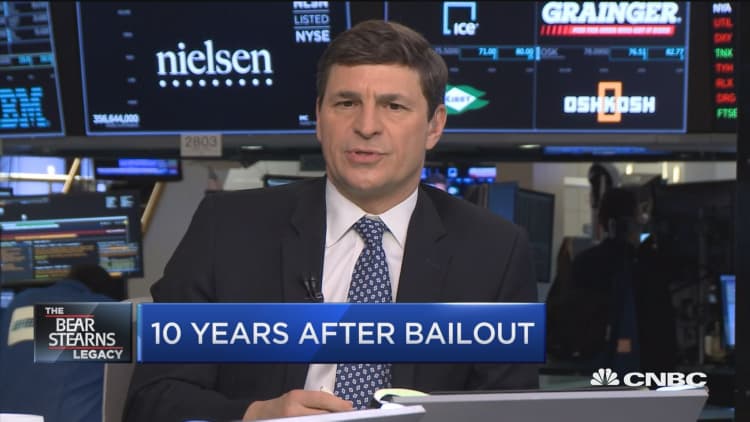
Something similar to the 2008 financial crisis could happen again because the offenders then did not suffer any significant consequences, CNBC's Jim Cramer argued Friday.
"The main reason something bad could happen again is because no one went to jail the first time," Cramer said on "Squawk on the Street."
Ten years ago, on March 16, 2008, J.P. Morgan Chase agreed to buy failing Bear Stearns, an early sign of the financial storm to come. The deal, which was backed by the Federal Reserve and the Treasury Department, avoided a collapse of the venerable investment bank suffering under the weight of bad mortgage debt.
Speaking generally, without naming names, about those responsible for the toxic investment vehicles of the time, Cramer said: "They didn't rob a 7-Eleven, where they would go to jail. They robbed us."
There's a level of transparency that banks must now obey, Cramer said, adding that U.S. lenders and their balance sheets are currently "better off" than they were 10 years ago. However, the federal government still could have set a much stronger precedent, he contended.
The government could have said, "Look, we put a lot of people in jail. It's not going to happen again because jail is bad," said Cramer, host of CNBC's "Mad Money." "And then the narrative would change: 'It's not going to happen again because we put the top five board members of XYZ bank in jail.'"
In 2007, Cramer went on a fiery rant, blasting then-Fed Chair Ben Bernanke and central bankers for their lack of knowledge about the risk that the subprime mortgage market posed to the financial system.
He later recalled that the global financial meltdown that led to the Great Recession could have been mitigated if the Fed had slashed interest rates "more dramatically" at the time.


